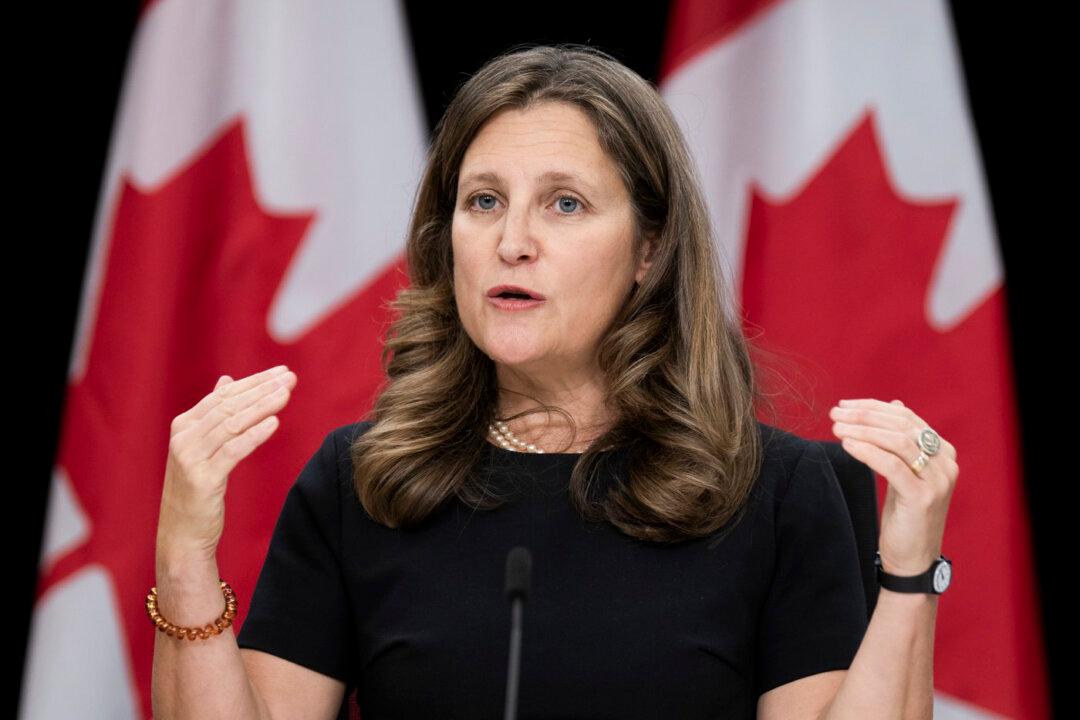Deputy Prime Minister Chrystia Freeland says the Liberal government will be appealing the decision of a federal judge who found that the invocation of the Emergencies Act in response to the Freedom Convoy was “unreasonable.”
“We have discussed it with the prime minister, with cabinet colleagues, with senior federal government officials and experts,” she told reporters in Montreal on Jan. 23. “We respect very much Canada’s independent judiciary. However, we do not agree with this decision. And respectfully, we will be appealing it.”





